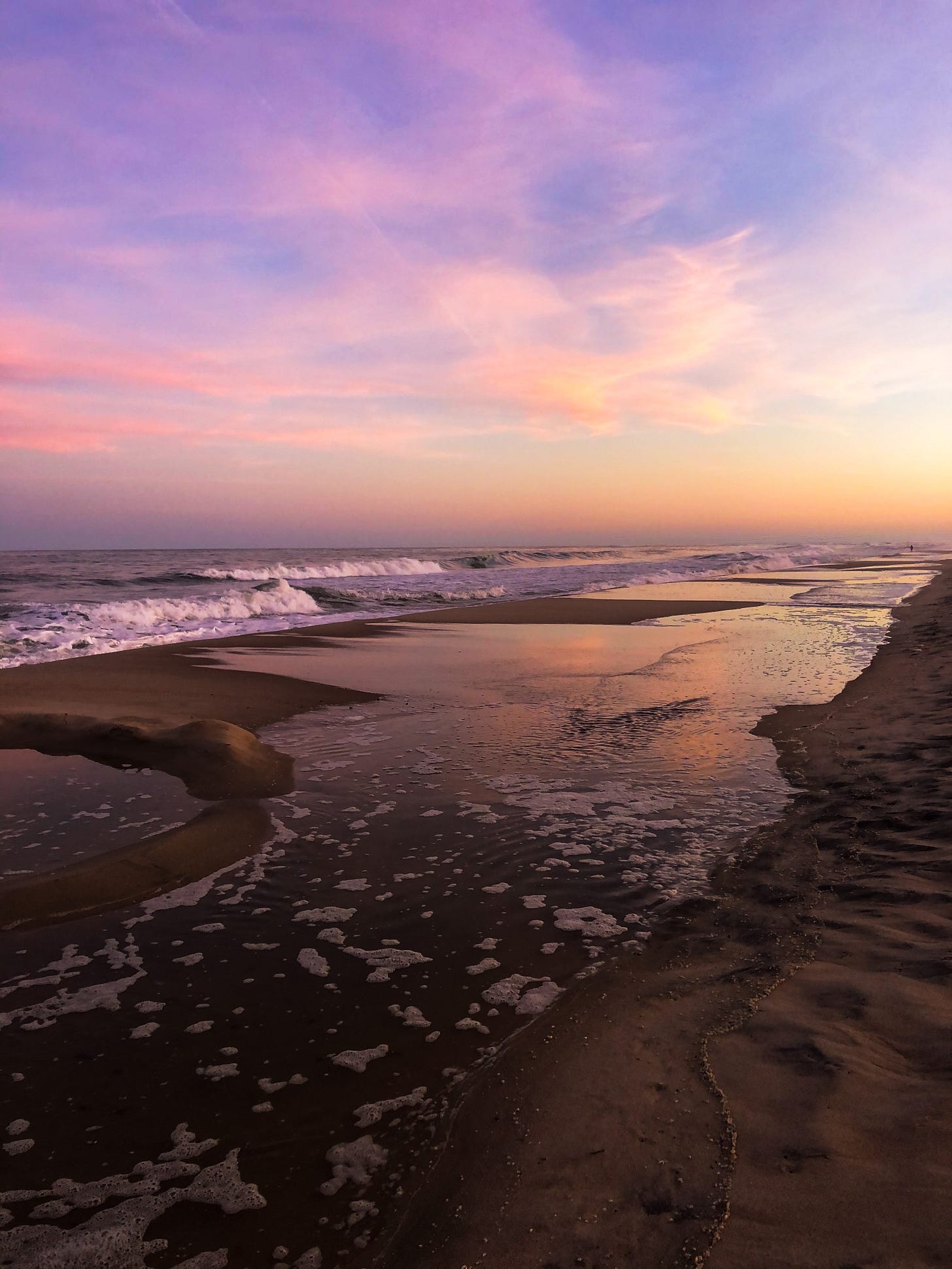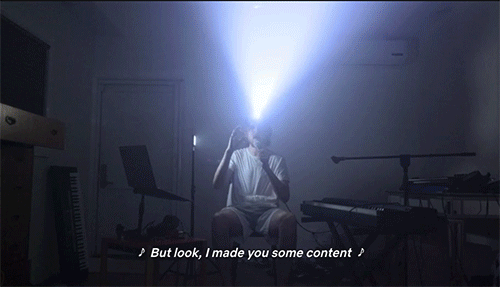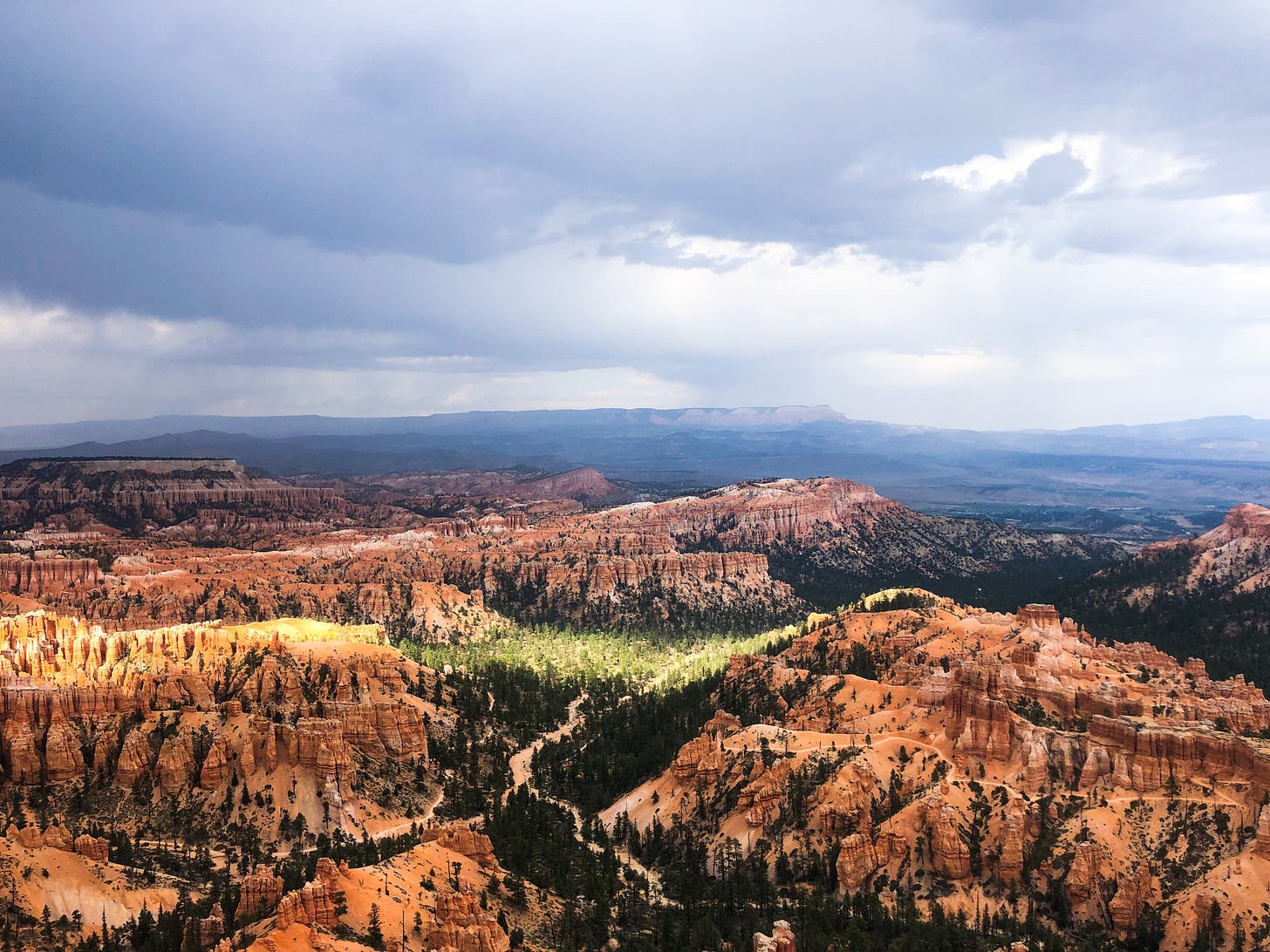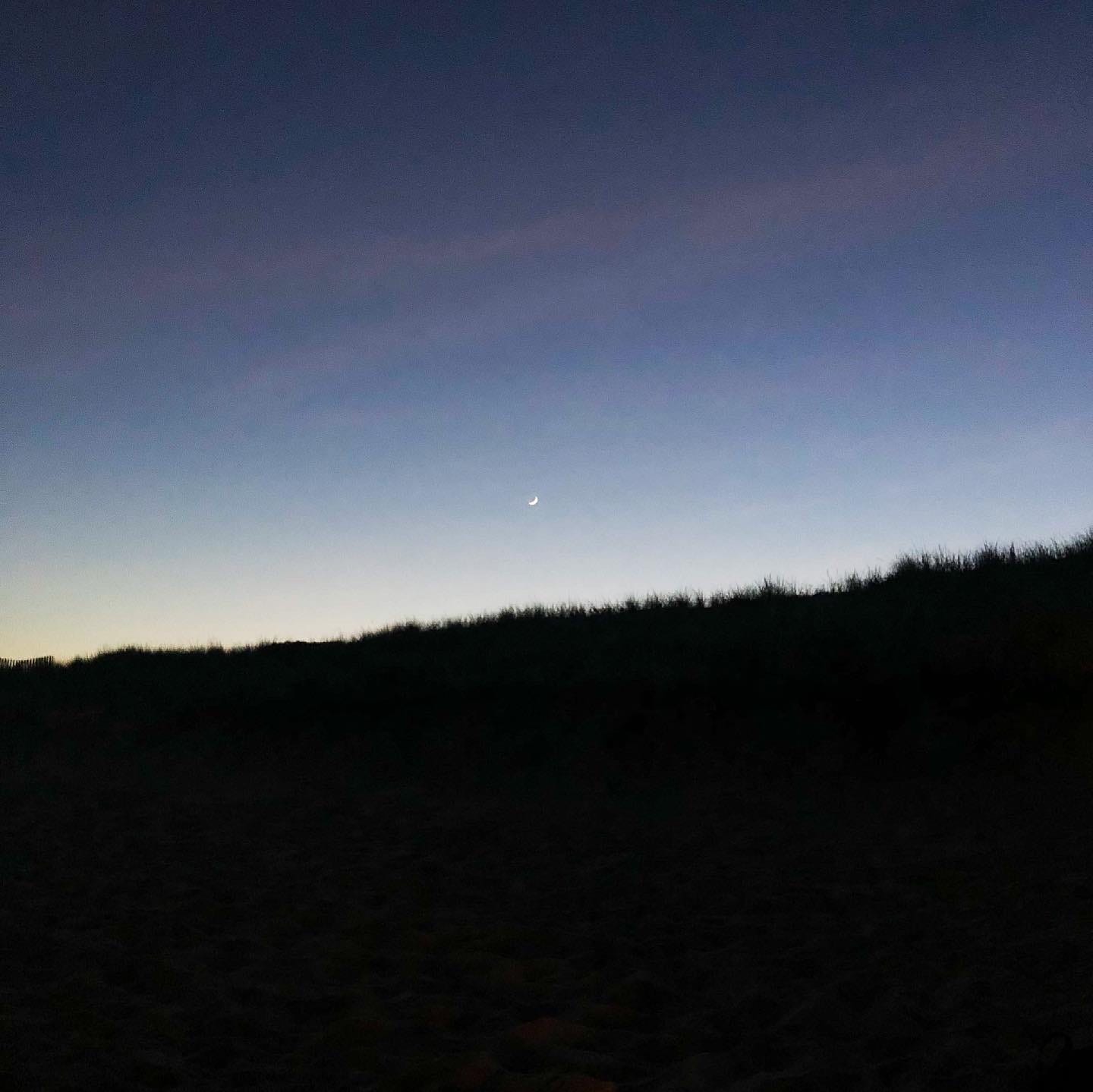The Freedom of Having Nothing to Say
(A 2-in-1 "I just turned 30" and "I'm finally using social media less" post!)
“Certain people were born with the internet inside them and suffered greatly from it.” — Patricia Lockwood, No One Is Talking About This
Turning 30 naturally brings about self-reflection, an instant kaleidoscopic summoning of whatever my twenties meant to me. Many of the images that come up bring me back to wherever I physically was at different points (cramped first apartments; open-office desks; for much of the pandemic, Prospect Park), but there are chunks missing. There were train windows I didn’t look out of, faces I didn’t look up at, entire meandering thoughts that never came to exist, because of my phone.
I knew this when I was 21, and 25, and 28, that I was “missing out on real life,” as every adult over 40 would say with a mix of concern and resignation. It didn’t matter: If I was having a good time, I had to stop, take a photo, scrutinize the caption for 30 minutes, then glance at my likes for an accumulated 30 more. If I was having a bad time, I had to witness someone’s 12-person Tulum vacation and feel worse.
If I had too irresistable a tweet to post, I would redownload the Twitter app or frantically log on to my browser. If I had a joke, fairly benign observation, half-informed political quip, or jab at a universally unlikeable figure, I. Had. To. Say. It.
I’d imagine the photos I would pose for and the punny captions I would write before a party even happened.
After a while, it got easier to be misinterpreted; with 10% of Twitter generating 80% of the content, and select content pinned to Twitter’s Trending Topics for all to see (and harass someone over a movie opinion), the odds of becoming the character of the day seemed especially high. I had an unofficial proofreading committee of about three friends I would alternate sending draft screenshots and a meek “do you think this is ok to say?” If we ended up tweaking the tweet, I’d just stare at it like an eyebrow I overplucked, and delete.
Over time, this started to feel like a peculiar addiction. I was not escaping my reality; I was squarely in the middle of it, thinking of what to say. Sometimes I’d imagine the photos I would pose for and the punny captions I would write before a party even happened, disappointed when I enjoyed myself so much that I forgot my other pressing task: Make sure people know.
Something else happened, too: I slowly expanded in real life. I was nervous to talk to strangers in running groups and basement choirs with neither alcohol nor phone in hand. It was scarier to ask someone a dumb, obvious, boring question like “So, uh, why’d you move to New York?” than blast my feelings about Kylie Jenner to several thousand people. I received penpal letters stuffed with watercolor drawings and handwritten family recipes and took months to respond, because what could I give back if it couldn’t be a culturally relevant GIF?
But as I met more people, trudged through awkward first and second and 20th conversations, experienced the humbling and utterly survivable crisis of an unfilled silence, it got easier. Friends I not so long ago approached for the first time are now the same ones planning trips with me and placing their newborn sons on my lap. Like the protagonist of Patricia Lockwood’s remarkable novel (and many other people), I was gradually pulled into the world.
I don’t think my time on Twitter or Instagram or Facebook was a waste, and I still use some of them, just very differently. What these platforms did was magnify the ways I performed without realizing it, in classrooms and friend groups and close relationships. What they did was reveal, in the barest and most grotesque way, the small humiliation of only three likes — three flat hearts — on something I really hoped would win me more (and how uncomfortable it felt when taking down someone else earned me oh so many of them).
Acceptance is standing in a fluorescent rehearsal space, working to recall the name of someone you met last week before admitting you forgot.
What they did was teach me that of course we all want to be accepted — we would not be here if our ancestors were loners — but acceptance doesn’t make you stare at your own Instagram story trying to figure out if it’s aggressively basic or earnest or cheugy or [future punitive synonym for “uncool”].
Acceptance is standing in a fluorescent rehearsal space, working to recall the name of someone you met last week before admitting you forgot. It’s them smiling and saying, no worries, they forgot yours too. It’s the decision to start again.







A delightful piece! I think the notion of acceptance if often over-intellectualised in the media but you've summed it up perfectly.